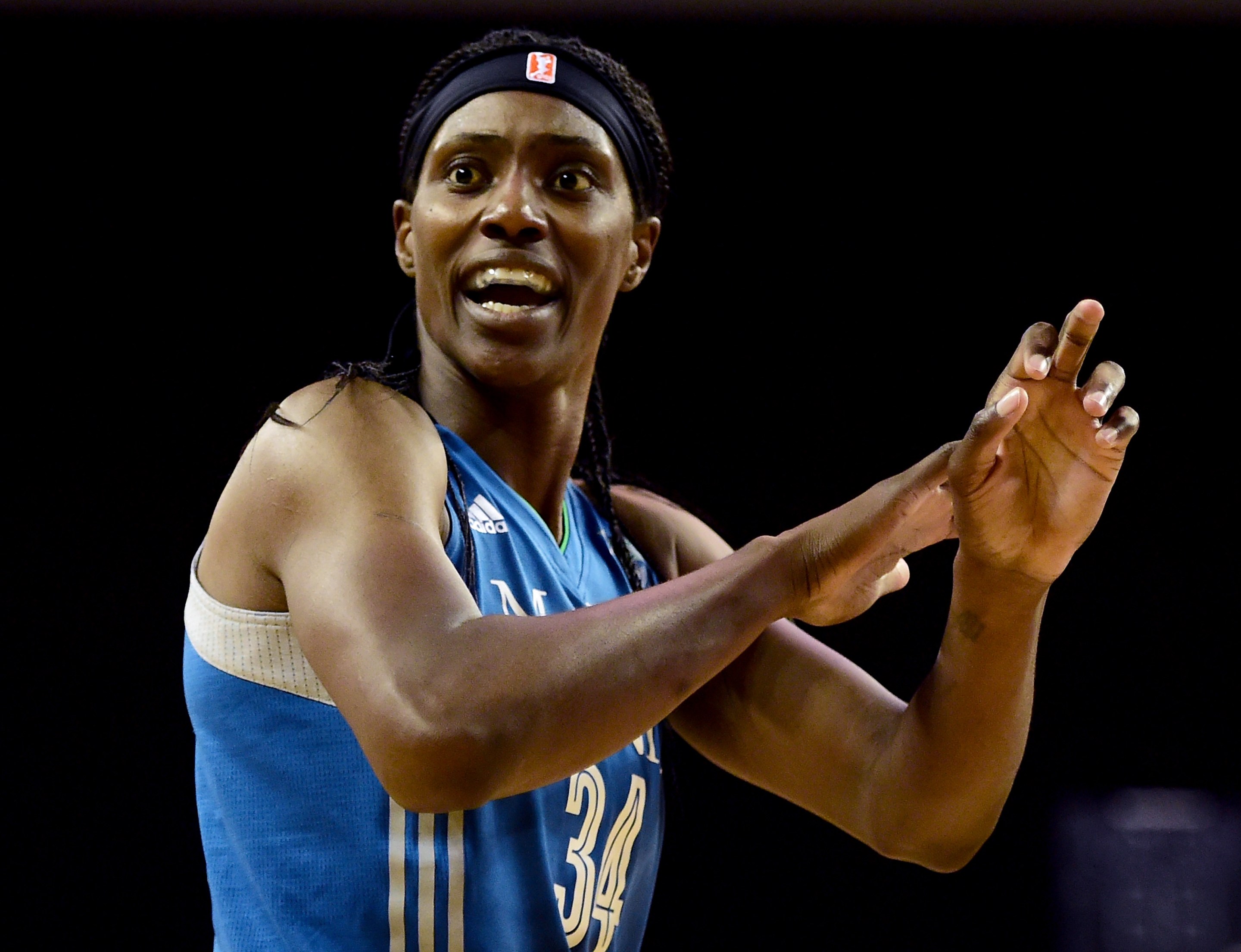A couple days ago, with a chance to win a game the Storm were trailing by two with 10 seconds left in overtime, a wide-open Sue Bird took a fairly unwise three-pointer that clanked right off the rim. There was nothing too unusual about the shot; unwise three-pointers clank right off the rim all the time. But it was Sue Bird taking the shot, and when you've come to admire a player for her wisdom, even one weird, ugly clank in the middle of an otherwise good season can feel jarring, like finding out your respected Texas megachurch pastor father has been having an affair or something. The obvious factors were at play: Bird is 40 years old, has played more minutes this season than she has in a while, was probably pretty gassed by overtime, and took the shot on beleaguered knees. Still, knowing that she is helpless, like all of us, before the irreversible flow of time doesn't offer much in the way of comfort.
It is not really easy to do anything in the WNBA, but it's very hard to age. The constraints of rosters—12 teams, 12 spots each—don't permit anything like Udonis Haslemship. If a player won't contribute—that is, real box score contributions, not veteran presence or vibes—they will not be on the team, simple as that. Stick around too long and soon be resented for taking some springy youngster's spot. Four-time champion and Lynx great Seimone Augustus said as much when she retired suddenly at Sparks training camp back in May. "If I’m not able to give what I’m used to giving, then I have to allow someone else to carry this torch and live out their journeys," she said. The ethical quandary came up again last week when Bird and Diana Taurasi were named to their fifth Olympic team roster, and more than a few people wondered whether it wasn't time for them to let someone else have a turn.
That even the WNBA's longevity darlings are getting some grief got me appreciating another less-lauded veteran on the Olympic roster, Sylvia Fowles, who might boast the unique basketball career entirely above such slander—she is that good and that reliable. The 35-year-old Minnesota Lynx center will make her fourth Olympics appearance next month in Tokyo, but for now, she's enjoying a terrific 14th season in the WNBA, leading the league in field goal percentage and also in steals. Maybe that's not surprising for a player whose calling card is never ever showing any signs of decline, but Fowles is returning from a calf injury that kept her out for most of last year, the first time she'd missed any games for the Lynx in five seasons playing for them. She's not merely doing well for a 35-year-old, but playing as well as any player could hope to this season and making a good case to win her fourth Defensive Player of the Year award. Against the Aces on Friday night, she put up the spectacular—and WNBA-first—statline of 30 points, 14 rebounds, four assists, four steals and four blocks. The game before, against the Dream, it was 26 points, 19 rebounds, an assist, two steals and five blocks.
Syl's week:
— Minnesota Lynx (@minnesotalynx) June 28, 2021
➖ 28.0 ppg
➖ 16.5 rpg
➖ 4.5 bpg
➖ 3.0 spg
➖ 63.9% FG
Does it get any sweeter? pic.twitter.com/IwCmDil1Om
So with Augustus retired and Maya Moore's return seeming more and more unlikely, it looks like Fowles will be the one turning out the lights on the Minnesota Lynx dynasty. Fowles is now the veteran leader—her teammates call her "Mama Syl"—on a rebuilding (or retooling? It's not that dire) Lynx team sitting right at .500 after a surprisingly rocky start to the season. It's funny to remember that Fowles was the young-ish latecomer to Minnesota. She never wanted to play for the Lynx, the franchise; she wanted to play for those Lynx, a contending core perennially in the Finals and already with two championships to its name. After eight years playing for the Chicago Sky, she held out half the 2015 season to force what would be a dynasty-prolonging trade, something so rare in this league I could probably count the times it's happened on one hand. That Fowles hasn't since been hounded by snake emojis says more about the temperature of WNBA discourse than anything else, but also you can't really accuse a player of parasitic ring-chasing when she goes on to put together one of the greatest individual WNBA seasons of all time, one so good it distinguished her as MVP on a team with four of the WNBA's best players.
Fowles was ostensibly on a minutes restriction to begin the season, but Lynx head coach Cheryl Reeve seems to have done away with it; her usage is the highest it's been since that 2017 MVP season, and it's thanks to her and her frontcourt partner Napheesa Collier that things are looking up for Minnesota lately. "She's the best center in the history of our league," Reeve said, after that monster game on Friday. Lisa Leslie might disagree, and maybe rightfully. But Leslie was sort of a unicorn; Fowles is as true a center as they come, and in 2021, she's really still skyhooking and low-post footworking. It's some of the most pleasing basketball to watch. (And if that take makes me an 80-year-old man, sorry! Don't care!) Her career could be taken as evidence that the WNBA remains a place where a center can make an honest living in old-school back-to-the-basket stuff, but I'm inclined to see Fowles as the exception that proves the rule. Only a total post genius with unimpeachable technical skill could get away with playing the way she has for 14 years. What a remarkable talent, to do an almost obsolete job so well that nobody has any reason to stop you from doing it.






